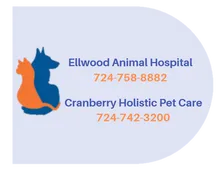While the country is on lockdown, you are likely spending more time at home with your family and pet. Since you are around more, you may assume that you can watch your pet closely, to ensure she doesn’t get into mischief, but between working remotely, supervising your kids’ schoolwork, and hunting down sanitizing wipes, you are spread more thinly than ever. And, projects such as baking, home improvement tasks, and crafts present daily hazards for your pet during quarantine. The last thing you want is to have to leave your home to take your pet to the hospital, so check out your house, and safeguard these areas against common pet dangers.
Keep Pets Out of the Kitchen
With barren grocery store shelves, you may decide to bake bread or make pizza dough from scratch. While channeling your inner Martha Stewart is a great way to teach your kids cooking basics, ensure your pet does not get hold of the raw yeast dough, which can rise in her warm stomach, and cause bloat or a blockage.
You may be surprised at how quickly your kids can clear your pantry shelves while home all day. Get creative, and toss together the contents of almost-empty bags to make trail mix. But, restrict your kids’ snack time to the kitchen, and keep your pet safely in another room, in case pet-toxic ingredients, such as grapes, raisins, or chocolate, are dropped on the floor. If you think your pet may have eaten something toxic, check with the Pet Poison Helpline or ASPCA Animal Poison Control Center, or call Cranberry Holistic Pet Care.
Don’t Let Pets Play in the Playroom
Asking your stuck-at-home kids to not pull out every toy in the playroom is unrealistic, but your pet may not be able to resist the tiny toys and stuffed animals. If your pet eats a small toy or teddy bear stuffing, she may choke, or develop a stomach or intestinal blockage. Gate the playroom door, or keep your pet safely in another room during play time, until everything is safely put away.
Between school projects and craft time, your craft table is probably overflowing with supplies, such as glue, glitter, and popsicle sticks. Keep a close eye on your pet, to ensure she doesn’t lick up spilled glue, or chew on popsicle sticks, which can splinter and puncture her gastrointestinal (GI) tract.
Bathrooms can be Bad for Pets
If you stocked up on cold and flu medications or anti-inflammatories, such as Tylenol, ibuprofen, or Aleve, in case your family falls sick, keep these potential poisons out of your pet’s reach. Many medications safe for human use can cause life-threatening pet toxicity. According to the ASPCA’s top 10 pet toxins list, human over-the-counter and prescription medications are the most common pet toxicity culprits, and account for more than one-third of their total calls.
Close the Garage to Pets
If you are using your new-found down time to work on home improvement projects, you are likely in and out of the garage, with your pet following closely behind. Your garage shelves house a number of pet hazards, including cleaning chemicals, paint, lawn and garden products, and antifreeze. Store all chemicals out of your pet’s reach—although lapping up a paint puddle sounds unappetizing to you, a curious pet may find it oddly attractive.
If you are working with power tools, ensure your pet is not underfoot, to prevent an accident that injures her, or you. Keep the garage closed whenever tools are out, so your inquisitive kids or pet can’t accidentally knock down a heavy tool and hurt themselves, or get cut.
Pets can Find Trouble in Your Yard
Your home may have the greenest lawn and most colorful flower beds, with the extra time you can devote to them this spring. But, before you plant your garden, or treat your lawn, consider which products may be toxic to your pet, including:
Fertilizers — Many garden fertilizers are made of animal products, such as blood or bone meal, and your pet may get into the bag, or eat them after application.
Garden plants — Some garden plants, such as green tomatoes, are toxic to pets. Before planting your garden, research toxic plants, and choose safe varieties, or build a fence to keep your pet out.
Flowers — Many common flower bed blooms also pose a risk to pets. Most notorious are lilies, which can cause acute kidney failure in cats who eat only a small amount of the leaves, flowers, or pollen.
Cocoa bean mulch — Freshly laid cocoa bean mulch has an appetizing chocolate aroma, but contains toxic chemicals. Dogs who ingest a large amount can suffer toxicity, or a GI blockage.
Insecticides — A chemical made to kill insects will likely also harm your pet. Slug and snail baits are particularly dangerous, and can cause severe toxicity and death.
Rodenticides — Baits made to kill mice, rats, moles, and gophers can cause significant toxicity, and death, and should never be placed in areas accessible to pets.
